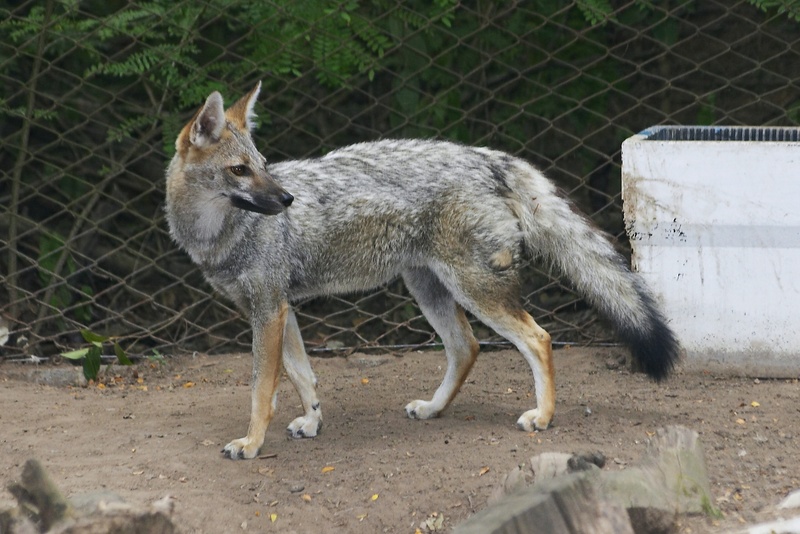|
| Query: Small white | Result: 1314th of 2240 | |
Gray Fox (Urocyon cinereoargenteus) - Wiki
| Subject: | Gray Fox (Urocyon cinereoargenteus) - Wiki
| |

| Resolution: 2408x1608
File Size: 1137909 Bytes
Date: 2005:12:24 14:58:22
Camera: EOS 300D DIGITAL (Canon )
Exposure: 1/160 sec
Focal Length: 168/1
Upload Date: 2007:09:04 17:50:35
|
Gray Fox
From Wikipedia, the free encyclopedia
[Photo] Urocyon cinereoargenteus, also known as gray fox, at Am??rica's zoo, Argentina. Photographer: w:es:Usuario:Barcex http://en.wikipedia.org/wiki/es:Usuario:Barcex
The Gray Fox (Urocyon cinereoargenteus) is a species of canid ranging from southern Canada, throughout most of the lower United States and Central America, to Venezuela. This species and the closely related Island Fox are the only living members of the genus Urocyon, which is considered to be among the most primitive of the living canids.
Description
The gray fox is small and has a pepper brown back and white smudge around it's nose; tawny sides, neck, and legs; a white belly; and a black stripe along its back and tail. Another black stripe crosses its face from the nose to the eye and continuing to the side of the head. Standing about 12-16 inches at the shoulders, the gray fox is an agile canid able to scurry up and down trees with relative ease.
Compared to the red fox
The red fox is the most commonly known fox. (Note that despite their names, these two species are only distant relatives within the Canidae.) The gray fox somewhat smaller than the red fox. The gray fox has a coat one inch shorter than the red and is limited to warmer climates than the red, which can be found in polar regions. Its tail, however is more luxuriant. Both foxes tend to travel in a straight line when not hunting or being hunted. The gray is more reclusive and less tolerant of human presence. The gray can easily climb trees which the red fox doesn't do except in areas where the two live near each other. In these areas, the red foxes seem to have learned how to climb trees from the gray foxes. They mate in February, at the same time as the coyote and a few weeks after the red fox.
http://en.wikipedia.org/wiki/Gray_Fox
| The text in this page is based on the copyrighted Wikipedia article shown in above URL. It is used under the GNU Free Documentation License. You may redistribute it, verbatim or modified, providing that you comply with the terms of the GFDL. |
|
Comments |
|---|
| | Guest |
|
| ty56736867 |
^o^
Animal Pictures Archive for smart phones
^o^
|
|
|

